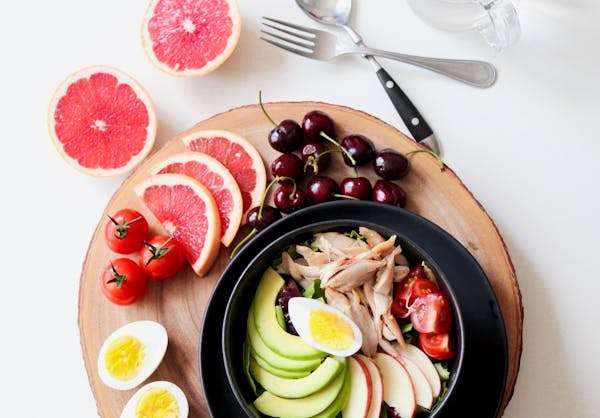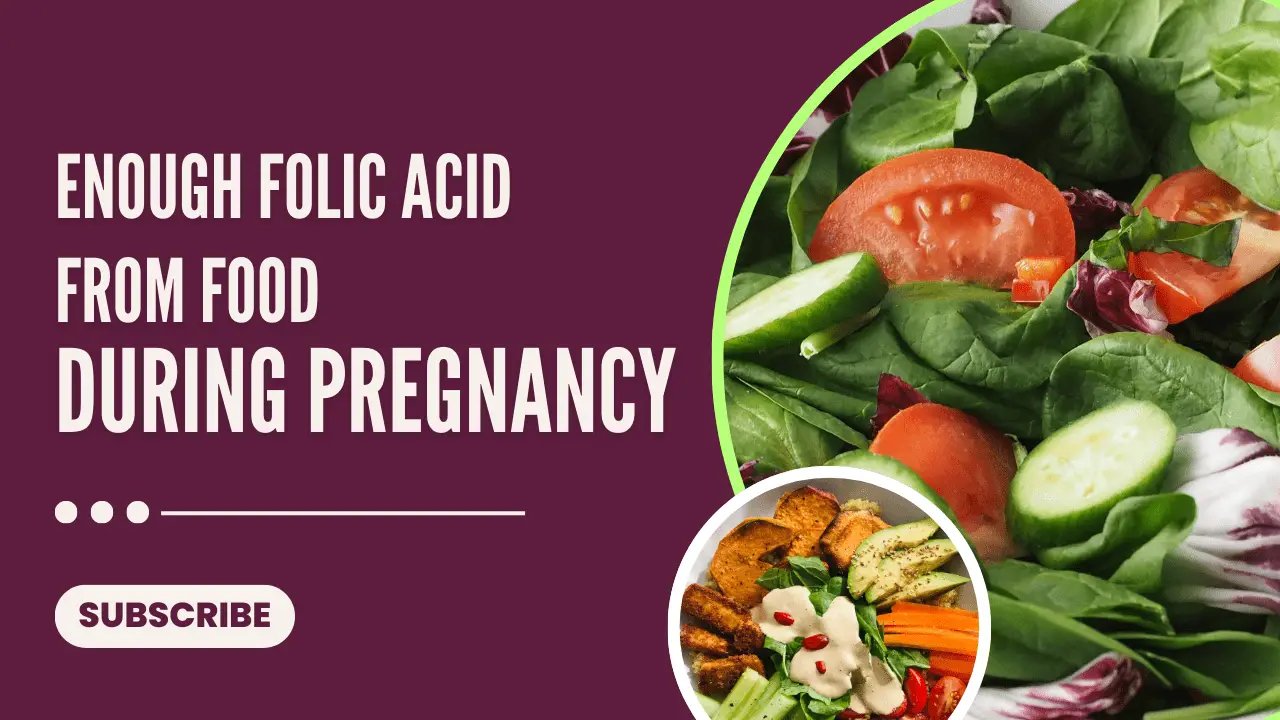For the sake of the developing fetus as well as the health of the expectant mother, it is imperative to consume enough folic acid foods for pregnancy. A crucial B vitamin that supports overall cellular growth and helps avoid neural tube abnormalities is folic acid.
This blog article discusses the dietary choices that expectant mothers can make to ensure they get the recommended daily intake of folic acid. Pregnant women can optimize their pregnancy outcomes by increasing their nutritional intake by knowing which foods are rich in folic acid and how to incorporate them into meals.
A well-rounded diet that promotes the health and development of mother and child is ensured by finding a variety of folic acid sources, from leafy greens to fortified cereals. Essential foods and practical tips to help expecting mothers achieve sufficient folic acid intake during this critical phase of life.
What is Folic Acid?
A synthetic version of vitamin B9, folic acid is essential for DNA synthesis and cell division. It is especially important during pregnancy since adequate consumption prior to conception and during the first trimester lowers the chance of neural tube abnormalities in the growing brain and spine of the fetus.
These flaws may result in major health issues. In addition to promoting healthy red blood cell production, folic acid keeps the brain functioning normally. While our bodies naturally manufacture some folate, it is necessary to obtain the necessary amounts from nutrition during pregnancy.
Leafy greens, such as kale and spinach, are excellent sources of folate. Nuts, citrus fruits, and fortified grains such as breads and cereals make good additions. Since dietary intake might not always be enough, especially when planning a pregnancy, prenatal vitamins containing folic acid are commonly recommended by doctors.
These supplements ensure you have adequate levels to support your health and your baby’s healthy development.
Recommended Daily Intake:
The recommended daily intake of folic acid varies depending on your pregnancy stage. Here’s a breakdown:
- Before pregnancy and during the first trimester: The Centers for Disease Control and Prevention (CDC) recommends 400 micrograms (mcg) of folic acid daily for all women of childbearing age. This can help prevent neural tube defects even before conception, as the neural tube forms very early in pregnancy.
- Second and third trimesters: The American College of Obstetricians and Gynecologists (ACOG) recommends 600 mcg of folic acid daily during this time. This increased amount supports your baby’s ongoing growth and development.
Food sources can contribute to your folic acid intake, but it might be challenging to consistently reach recommended levels through diet alone. Here are some excellent “folic acid foods for pregnancy”:
- Leafy green vegetables
- Fortified breakfast cereals and breads
- Citrus fruits like oranges and grapefruits
- Nuts, particularly peanuts and almonds
While these foods are beneficial, prenatal vitamins are often recommended to ensure you and your baby get enough folic acid throughout pregnancy.
Folic Acid Foods for Pregnancy:
Foods high in folic acid are essential throughout pregnancy to maintain the best possible health for both the mother and the fetus. The natural form of vitamin B9, folate, is abundant in these foods and is essential for promoting healthy embryonic growth and development as well as preventing neural tube abnormalities.
Leafy greens with lots of folate per serving, such as broccoli, kale, and spinach, are prime examples. Citrus fruits like oranges and grapefruits, as well as legumes like lentils, chickpeas, and black beans, are other great sources.

Incorporating folic acid foods for pregnancy into daily meals is essential to meet the increased nutritional needs during pregnancy. These foods offer important vitamins and minerals, as well as antioxidants and fiber that are good for the general health of mothers.
This section looks at a range of foods high in folic acid, emphasizing its health advantages and adaptability for pregnant women’s meal planning.
Pregnant women can make sure they are getting enough folate to support both their own well-being and the healthy development of their unborn child by including these nutrient-dense foods in their diet.
Incorporating Folic Acid into Your Diet:
Getting enough folic acid during pregnancy is crucial, but supplements aren’t the only solution. Folic acid foods for pregnancy offer a delicious and natural way to boost your intake. Here’s how to integrate them into your diet:

- Start with the Greens: Leafy green vegetables like spinach, kale, and collard greens are champions of folic acid. Add them to salads, or omelets, or blend them into smoothies.
- Breakfast Boost: Opt for breakfast cereals fortified with folic acid. Pair them with fruit for an extra folate punch.
- Citrus Power: Include oranges, grapefruits, and tangerines in your diet. These refreshing fruits are a great source of natural folate.
- Bean Bonanza: Don’t underestimate the power of legumes! Lentils, chickpeas, and black beans are packed with folate and other essential nutrients. Enjoy them in soups, stews, or dips.
- Snack Smart: Snacking on nuts like almonds and peanuts is a healthy way to increase your folic acid intake. They’re also portable and convenient.
Remember, variety is key! By incorporating a diverse range of folic acid foods for pregnancy throughout the day, you can ensure you and your baby are getting the recommended daily intake of this vital nutrient.
Supplements and Other Sources:
Folic acid foods for pregnancy are essential, but sometimes dietary intake alone may not suffice to meet recommended levels. In such cases, supplements and fortified foods can play a crucial role in ensuring adequate folate intake for expecting mothers.
- Folic Acid Supplements: Prenatal vitamins often contain folic acid to supplement dietary intake. Healthcare providers typically recommend these supplements to pregnant women to help meet daily folate requirements.
- Fortified Foods: Many food products, such as breakfast cereals, bread, and pasta, are fortified with folic acid. These fortified foods can contribute significantly to overall folate intake when included as part of a balanced diet.
- Other Sources: In addition to supplements and fortified foods, naturally occurring folate in foods like leafy greens, citrus fruits, and legumes provides essential nutrients beneficial for maternal and fetal health.
While focusing on folic acid foods for pregnancy, it’s important to consider supplemental sources like prenatal vitamins. The importance of supplements in maintaining adequate levels of folate will be discussed in this section, particularly in cases where dietary intake may be inadequate.
Along with stressing the value of sticking to a varied, nutrient-rich diet while pregnant, it will also examine the advantages of fortified foods as practical ways to increase folate intake.
Pregnant women can effectively maintain their health and encourage the best possible development for their unborn child by being aware of these extra sources.
Health Benefits for Mother and Baby:

Folic acid foods for pregnancy offer significant health benefits that contribute to the well-being of both the mother and the developing baby. Adequate intake of folate-rich foods during pregnancy supports various aspects of maternal and fetal health.
- Prevention of Neural Tube Defects: Folic acid plays a crucial role in the early development of the fetal neural tube, which forms the baby’s brain and spinal cord. Adequate folate intake lowers the risk of neural tube defects, including spina bifida and anencephaly.
- Cell Growth and Division: Folate is essential for DNA synthesis and cell division, processes vital for the rapid growth and development of the placenta and fetus during pregnancy.
- Maternal Health Benefits: Pregnant women benefit from folate’s role in supporting red blood cell production and preventing anemia. Folate also aids in maintaining healthy immune function and reducing the risk of preeclampsia.
- Long-Term Benefits: Adequate folate intake during pregnancy may have long-term benefits for the child’s health, including reduced risk of certain chronic diseases later in life.
Understanding the folic acid foods for pregnancy and their health benefits is crucial for expectant mothers.
This section will explore in detail how folate-rich foods contribute to maternal and fetal health, emphasizing their role in preventing birth defects and supporting overall well-being throughout pregnancy.
By prioritizing these nutrient-dense foods, pregnant women can optimize their health outcomes and promote the healthy development of their babies.
Conclusion:
Including foods high in folic acid food for pregnancy in your diet is a proactive way to protect the health of the mother and the fetus.
These nutrient-dense foods, which range from leafy greens to fortified cereals, improve fetal growth, lower the chance of birth abnormalities, and improve the general health of mothers.
Expectant moms can create the conditions for a healthier pregnancy and the long-term health of their unborn child by making a diet high in folate a priority. Click to learn more.
FAQs:
1: What are some good sources of folic acid for pregnant women?
Leafy greens like spinach, legumes such as lentils and beans, citrus fruits like oranges, and fortified foods such as cereals and breads are excellent sources of folic acid.
2: Why is folic acid important during pregnancy?
Folic acid is crucial for preventing neural tube defects in the baby’s spine and brain. It also supports healthy growth and development throughout pregnancy.
3: How much folic acid should pregnant women consume daily?
Pregnant women are recommended to consume 600 micrograms (mcg) of folic acid daily to support maternal and fetal health.
4: Can I get enough folic acid from food alone during pregnancy?
While it’s possible to get sufficient folic acid from a balanced diet rich in folate-rich foods, many healthcare providers recommend prenatal vitamins containing folic acid to ensure adequate intake.
5: Are there any risks associated with not getting enough folic acid during pregnancy?
Insufficient folic acid intake during pregnancy can increase the risk of neural tube defects in the baby. It may also contribute to maternal anemia and other complications.
